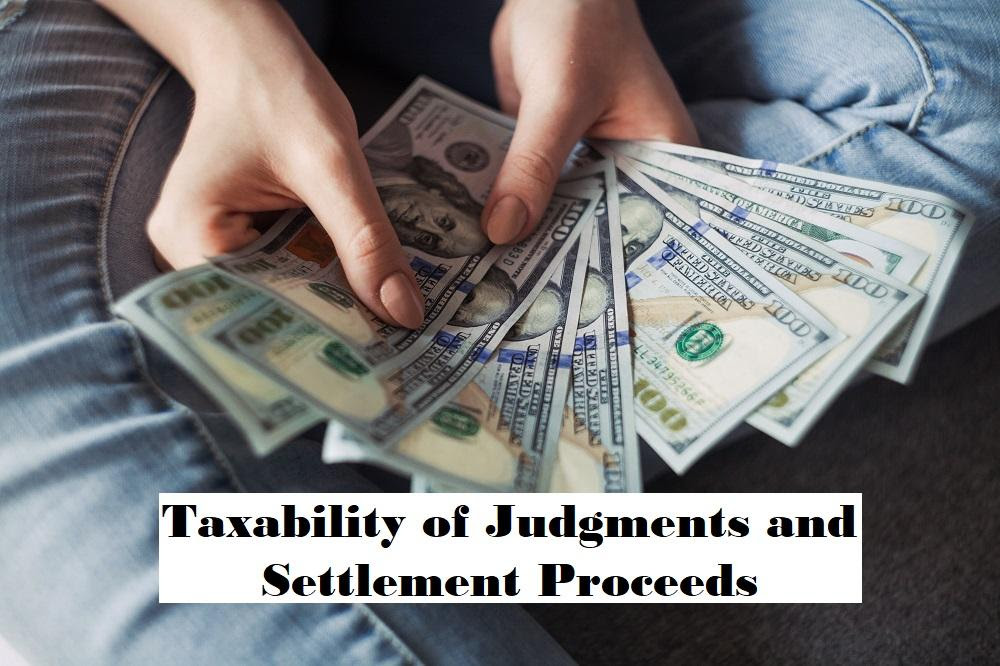If you’re involved in a legal dispute, it’s important for you to understand how the money you might receive, whether as part of a settlement or as awarded by a court or arbitrator, will be taxed.
The Internal Revenue Code states that all income—from whatever source derived—is taxable unless exempted by another section of the code. This means that unless there’s a specific exception that applies to your situation, all amounts you collect from a judgment or settlement will be taxed as income.
Below, we describe some general rules for taxation of awards and settlement proceeds, but the issues are more complex than we can cover in a brief alert. Be sure to check with your attorney or CPA about taxation in your own particular situation.
Injuries and Sickness: Physical and Nonphysical
Exceptions related to legal disputes include amounts paid on account of “personal physical injuries or physical sickness.” Those amounts aren’t taxable, but you do have to include in income amounts that are for medical expenses you previously deducted, to the extent the deductions provided a tax benefit.
The IRS has ruled that physical injuries must be observable bodily harms. Emotional distress and mental anguish are not considered to be physical injuries even when they cause physical symptoms, so proceeds relating to these claims are taxable as income, though not as wages, even when they’re related to an employment dispute.
Unless your emotional distress or mental anguish was caused by a physical personal injury or physical sickness, you can exclude from income only the amount of the medical expenses you incurred.
Similarly, amounts paid for defamation, fraud, and other claims causing nonphysical injuries are taxable as ordinary income.
Lost Wages and Lost Profits
Payments for back pay, front pay, and severance pay are nearly always taxable, since they are considered wages for purposes of both income taxes and employment taxes (e.g., Social Security).
When payments are taxable as wages, your employer—or former employer—must withhold applicable taxes and report the “wages” on Form W-2.
Similarly, payments for lost profits from your trade or business are net earnings subject to self-employment tax.
There is, however, an exception where the payments are for lost wages or lost profits caused by physical injury or sickness.
Loss-in-Value of Property
Amounts received for the loss in value of property are not taxable if they’re less than the adjusted basis of your property, though you do have to reduce your basis in the property by the amount of the settlement or award. If you receive more than your adjusted basis in the property, the excess is income.
Interest
Interest is taxable as interest income.
Punitive Damages
Punitive damages are taxable as ordinary income. This is true even if these damages are paid in connection with a physical injury or physical sickness.
Attorneys’ Fees
Attorneys’ fees are taxable, even those payable to your attorney as a contingent fee. In an employment dispute, payment of an employee’s attorneys’ fees will generally be taxed as wages unless the payment you receive is specifically identified as attorneys’ fees.
Allocation
When a settlement payment covers multiple claims, the settlement agreement should set out the agreed-upon allocation of the settlement funds to the various claims.
For example, claims in a particular dispute might involve emotional distress, back pay, and attorneys’ fees. Each party should negotiate the settlement with an eye toward the total costs and benefits.
That is, the party making payments should consider the total expense after allowed deductions, and the party receiving payments should consider the total proceeds, after payment of taxes.
So long as the agreed-upon allocation reasonably reflects the economic substance of the settlement, it will likely be accepted by the IRS.
**********
Please feel free to contact us if you have any questions about the above or if you need any assistance resolving a legal dispute.
Photo by Alexander Mils on Unsplash






